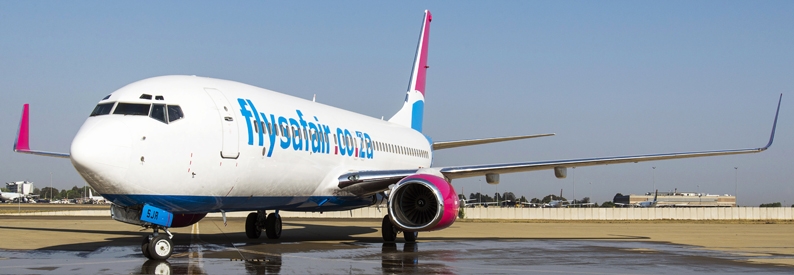FlySafair Wins Court Reprieve Over South African Ownership Rules

South African low-cost carrier FlySafair (FA, Johannesburg O.R. Tambo) has won an urgent court order suspending a regulatory deadline to restructure its ownership. The Gauteng High Court in Pretoria on October 7 granted the airline an interdict overturning a January 2026 deadline set by the Air Services Licensing Council (ASLC), allowing time for a full hearing on whether the carrier breached South Africa’s domestic ownership laws.
The dispute centers on the ASLC’s December 2024 finding that Safair Holdings, FlySafair’s parent company, failed to comply with the requirement that at least 75% of a South African airline’s voting rights be held by local citizens and residents. The regulator acted after receiving formal complaints from competitors Airlink and Global Aviation Operations, the operator of Lift Airlines. Following its investigation, the ASLC concluded that Safair’s ownership arrangement—where Irish-based ASL Aviation Holdings holds a 49.86% stake through a South African trust—did not satisfy the legal threshold for local control.
Safair has consistently argued that the trust structure ensures compliance, asserting that the trustees are South African citizens who exercise effective control over the airline. The ASLC, however, maintains that ASL Aviation Holdings ultimately exerts majority influence, with an effective 74.86% stake when its holdings in Safair Investment Holdings and the Safair Investment Trust are combined.
In February, the council ordered Safair to amend its ownership structure within 12 months or risk losing its domestic operating license. FlySafair responded by filing a legal challenge, arguing that the ruling misinterprets the company’s governance model and undervalues the role of its South African partners. The interdict now suspends the ASLC’s deadline until the court review is concluded—a process that is unlikely to take place before the original January 2026 cutoff.
In a related case, the International Air Services Licensing Council (IASLC), which regulates international routes, reached a similar conclusion in October 2024 about FlySafair’s foreign ownership structure. However, it has yet to impose any sanctions. Under South African law, international carriers must demonstrate “substantial” local shareholding and “active and effective” control from within the country.
FlySafair, one of South Africa’s most successful budget airlines, continues to operate normally while awaiting a formal court date. The outcome of the case could have far-reaching implications for foreign investment structures in the country’s aviation sector.
Related News: https://airguide.info/category/air-travel-business/airline-finance/
Sources: AirGuide Business airguide.info, bing.com, ch-aviation.com
